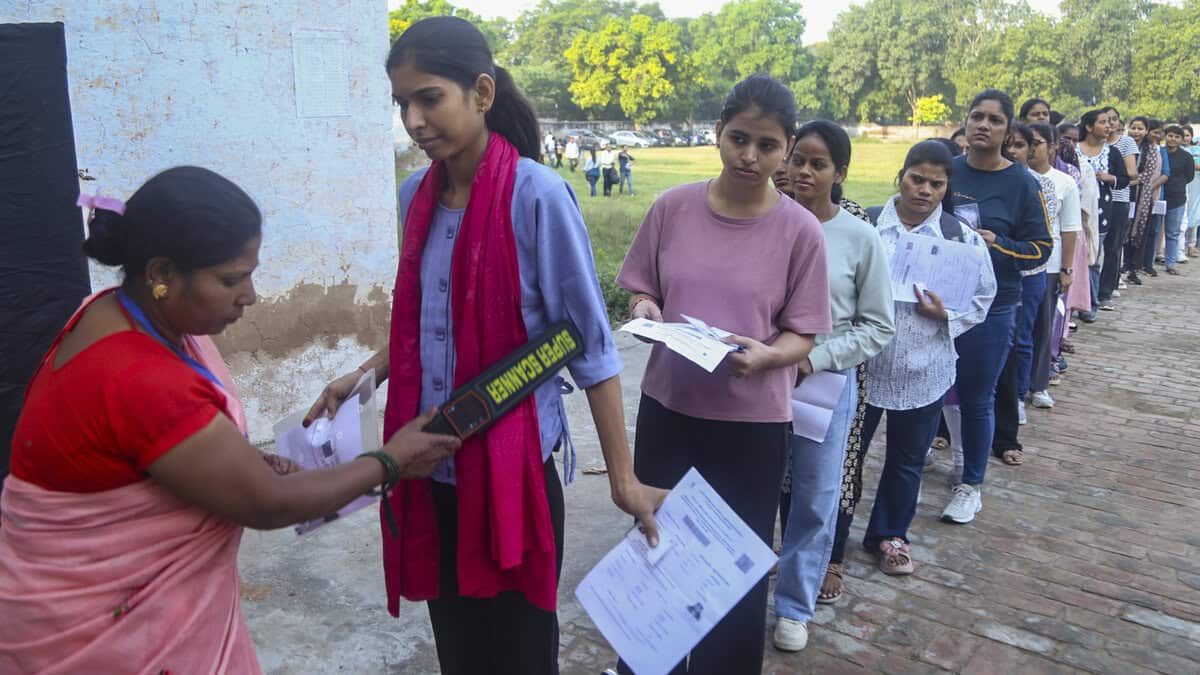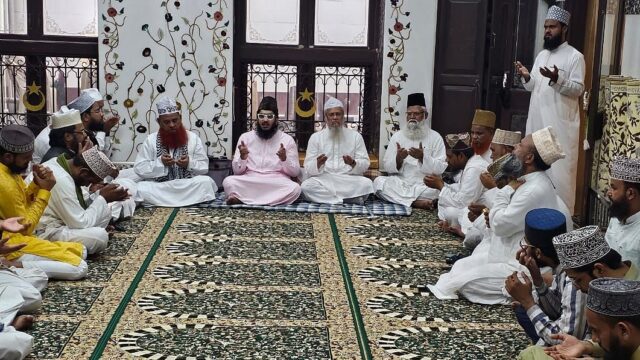As social and political tensions rise in anticipation of the tabling of the Waqf (Amendment) Bill in the Lok Sabha on Wednesday, Sufi organisations, including Ajmer Sharif, the most important Sufi shrine in India, have supported changes in the law.
The government said changes in the law will benefit poor Muslims. The bill has found support in Syed Naseeruddin Chishty, the chairman of the All India Sufi Sajjad Anshin Council (AISSC) and the son of the spiritual head of the 13th-century Khwaja Moinuddin Chishty shrine in Ajmer. “I believe the bill will bring transparency in the management of Waqf trusts and strengthen the administration of the trusts. The wishes of donors who create Waqf (endowment) will be protected,” Chisty told GPlus.
Muslim organisations and opposition parties have opposed the bill, accusing the government of wanting to take control of Muslim religious properties. Religious leaders who gathered for a meeting on Tuesday at the Handi Wali Masjid, Null Bazar, said that Waqf lands are the property of their ancestors. “It our religious duty to protect them. We are ready to make any sacrifice for this purpose,” said the Imam of Handi Wali Masjid and Islamic scholar Maulana Ejaz Ahmed Kashmiri.
The bill was sent for consultation to a Joint Parliamentary Committee after opposition during an earlier attempt to introduce the law in Parliament. The amended bill provides for a reconstitution of the Central Waqf Council and the state Waqf boards to ensure the representation of Muslim women and non-Muslims. The bill also proposes the establishment of separate boards for Shia sub-sects like Bohras and Agha Khanis. The bill omits section 40, which gives overarching powers to the Waqf board to claim properties as Waqf. The Sufi Islamic Board said that the amendment will end such limitless powers. “Recently, the Waqf Board claimed an entire village in Tamil Nadu as Waqf property. The village has a 750-year-old temple. If this power goes in the amended law, it is not a bad thing,” said Mansoor Khan, president of the Sufi Islamic Board.
The Sufi Islamic Board, which represents dargahs across the country, said that an amendment in the law was needed to release Muslim shrines from the control of puritanical sects like Wahhabis, Deobandis, Barelvis, and Ahl-i-Hadis. These groups forbid the worship of dargahs and the worship of saints. “They are non-believers who have taken over the trusts created by believers,” said Khan, who added that the inclusion of women and non-Muslims in administrative boards was not unprecedented, as these representatives have been part of the organisations. “Some of the most important figures in Islam have been women, like Khadija (wife of the Prophet Mohammad).”However, other groups are resistant to the government’s plans. Maulana Mohammad Abbas Rizvi said that leaders of secular parties will have to oppose the Modi government if they want to save the Constitution. Al Haj Saeed Noori, president of Raza Academy, a Barelvi group, warned that if leaders of secular parties, including Chandrababu Naidu, Nitish Kumar, Jayant Chaudhary, and Chirag Paswan, fail to oppose the bill, they will lose the trust of minorities.
















































